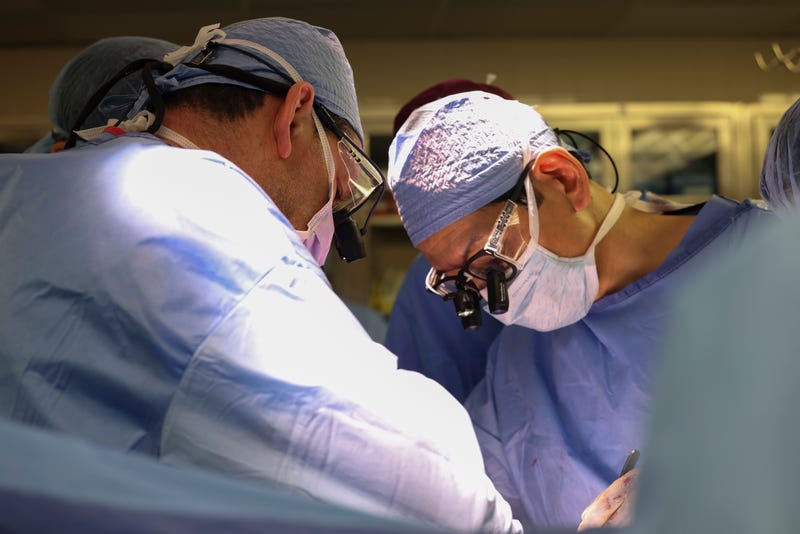
PHILADELPHIA (KYW Newsradio) — Surgeons at Massachusetts General Hospital in Boston made history with the first successful transplant of a genetically modified pig kidney into a living person. This comes on the heels of researchers in Philadelphia who took a pig liver one step closer to human transplant viability. These breakthroughs could one day ease the logjam of human organ transplants.
In January, Penn Medicine researchers successfully circulated a deceased donor’s blood through a genetically engineered pig liver, a process known as perfusion.
“We are able to perfuse this genetically modified pig liver for up to 72 hours — we probably can do it for longer. And during that time, there was no visible injury to the liver,” said Penn Transplant Institute’s Dr. Abraham Shaked, a professor of surgery who led the study.
Penn Medicine’s perfusion studies could potentially help more critically ill patients awaiting new organs.
“Any time a patient dies while waiting for a transplant, it is a tragedy, and we are always working to develop new ways to extend their lives,” he added in a statement. “The success of the first part of our study is significant for those facing liver failure, offering a glimpse into a future where innovative solutions can bring hope to patients who might otherwise be destined to die while waiting for a transplant.”
The breakthrough comes alongside promising developments of xenotransplantation — or animal-to-human procedures — in Massachusetts, where scientists are studying pig kidneys, and in Maryland, using pig hearts.
Boston’s Massachusetts General Hospital said on Thursday that doctors had transplanted a genetically modified pig kidney into a 62-year-old living patient. Doctors believe the pig kidney will work for at least two years.
Previously, pig kidneys have been temporarily transplanted into brain-dead donors.
Dr. Parsia Vagefi, chief of surgical transplantation at UT Southwestern Medical Center, called the announcement “a big step forward.” But echoing the Boston doctors, he said studies involving more patients at different medical centers would be needed for it to become more commonly available.
Shaked said there are still a number of unanswered questions about the short- and long-term viability of these transplants.
“Is this going to survive in not getting rejected for months? Two months? Half a year? A year? We still have to learn that,” he said.
But Shaked and his colleagues are encouraged by these latest results.
“If you asked me three years ago, two years ago, whether I’d predict where we were going to be today, the answer was probably not,” he admitted. “Now, I’m far more optimistic. I do believe that one of these days we are going to be at a stage where we can use one of these organs for transplantation.”
Pigs have long been used in human medicine, including pig skin grafts and implantation of pig heart valves. But transplanting entire organs is much more complex than using highly processed tissue. The kidney implanted into the Boston patient was provided by eGenesis of Cambridge, Massachusetts. The pig was genetically edited to remove harmful pig genes and add certain human genes to improve its compatibility.
More than 100,000 people are on the national waiting list for a transplant, most of them kidney patients, and thousands die every year before their turn comes.
The Associated Press contributed to this report.
